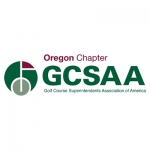Rule of the Month: Go Back Jack and Do it Again
By Sr. Rules Officials: Pete Scholz and Terry McEvilly
Click Here for the Rule of the Month Archive
When a Stroke Doesn’t Count or Is Cancelled
The Rules are very specific about when a stroke is cancelled in stroke play. However, in match play, in addition to the required cancellation of certain strokes, a player may also choose to cancel a stroke of an opponent due to a Rules breach.
It is imperative to know when a stroke doesn’t count or must be cancelled. Failure to replay the shot as directed by the Rule will result in playing from a wrong place, and will result in the player receiving the general penalty. In stroke play, if the breach was serious, the player could be disqualified.
Test your knowledge of when a stroke doesn’t count in your score and must be replayed with the following questions.
Questions: True / False
- A ball played from the fairway that accidentally strikes any person must be cancelled and replayed.
- A ball played from the putting green that accidentally strikes any person on the green, other than the flagstick attendant, must be cancelled and replayed.
- A player with a downhill putt strikes the ball too hard and misses the hole. The ball rolls down the slope of the green and comes to rest on a towel left on the putting green by another player. The player may lift the ball and remove the towel and must place a ball directly under where the ball came to rest on the towel.
- In beginning the play of a whole in stroke play, a stroke made from outside the teeing area doesn’t count but the player gets two penalty strokes and must play again from within the teeing area. He or she will be playing their third stroke.
- If a player in a match plays from outside the teeing area, he or she incurs a loss of hole penalty.
- In match play, if the player plays when it was the opponent’s turn to play, the opponent may require the player to cancel the stroke and play in the proper order.
- Strokes at a wrong ball do not count in the player’s score.
- In stroke play, strokes made from a wrong place always count and the player gets two penalty strokes.
- After a stroke on the putting green, the ball hits a worm before coming to rest in the hole. The stroke must be cancelled and replayed.
- Extra Credit Question: In a Three-Ball Match the order of play on the 3rd hole should have been Able, Baker followed by Charlie. However, after Able teed off, Charlie jumped in front of Baker and teed off out of order. Both Able and Baker may require Charlie to cancel the stroke and play another ball in the proper order.
Answers:
- False. Rule 11.1b. When a ball is played from the general area and strikes any person or animal, it must be played as it lies with no penalty. This is true even if the ball strikes the player, another player in stroke play or an opponent in a match. See question #2 for further clarity.
- True. Rule 11.1b. When a ball is played from the putting green and accidentally hits any person on the green, the stroke doesn’t count and the player must play again from the original spot. However, if the other person was attending the flagstick and the ball accidentally hits them, there is no penalty and the ball must be played as it lies.
- False. Rule 11.1b Exception 2. A ball that hits a movable obstruction on the putting green after a stroke from the putting green must be cancelled and replayed. One exception to this exception is that when a ball is played from the putting green hits another ball at rest, a ball marker or the flagstick, it must be played as it lies. See Rule 11.1a to find out if there is a penalty.
- True. Rule 6.1b(2). It is easy to accidentally tee it up slightly outside the teeing area. In stroke play, if a stroke is made at a ball outside the teeing area, the stroke doesn’t count and the player must put a ball into play from within the teeing area and add two penalty strokes. The original stroke from outside the teeing area doesn’t count in his or her score. Failure to correct this breach as outlined will result in the player being disqualified.
- False. Rule 6.1b(1). When a player in a match plays from outside the teeing area, the opponent may require the player to play the ball as it lies or to cancel the stroke and play again from within the teeing area. In either case, there is no penalty.
- True. Rule 6.4a(2). In match play only, if a player plays when it was the opponent’s turn to play, the opponent may require the player to cancel the stroke and play in the proper order. This must be done before anyone in the match makes another stroke and the opponent may not withdraw the cancellation.
- True. Rule 6.3c(1). When a wrong ball is hit, the stroke doesn’t count but the player incurs the general penalty (Loss of hole in match play or two strokes in stroke play). Additionally, any penalty strokes incurred solely from playing the wrong ball also don’t count. For example, any penalty for causing the wrong ball to move is disregarded.
- False. Rule 14.7b(3). When a player plays from the wrong place, it must be determined if this was a serious breach or not. If the breach was minor, the stroke counts and the player incurs two penalty strokes. However, if the breach was serious, it must be corrected by playing a ball from the correct location. The player still gets two penalty strokes but the stroke made from the original wrong place does not count in his or her score for the hole.
- True. Rule 11.1b Exception 2. When it is known or the player is virtually certain that a stroke from the putting green hits any member of the animal kingdom (worm), the stroke must be cancelled and replayed. Unfortunately, even though this ball is holed, the player must cancel and replay the putt.
- False. Rule 6.4. The order of play is seldom a concern when playing stroke play. However, since match play is more strategic, the order of play is much more important. There is no penalty in either form of play for playing out of turn unless players agree to play out of turn to give one of them an advantage--in which case, each player would receive the general penalty. In the situation presented, Charlie played out of order only in relation to Baker, who may require Charlie to continue with the original ball or cancel and play another ball in the proper order. Since the original ball wasn’t played out of order in relation to Able, Able has no right to require Charlie to cancel the stroke and play in the proper order. Charlie must continue the play of the hole with Able using the original ball. If Baker requires Charlie to cancel and play another ball in proper order, Charlie will need to complete the play of the hole with both balls.








